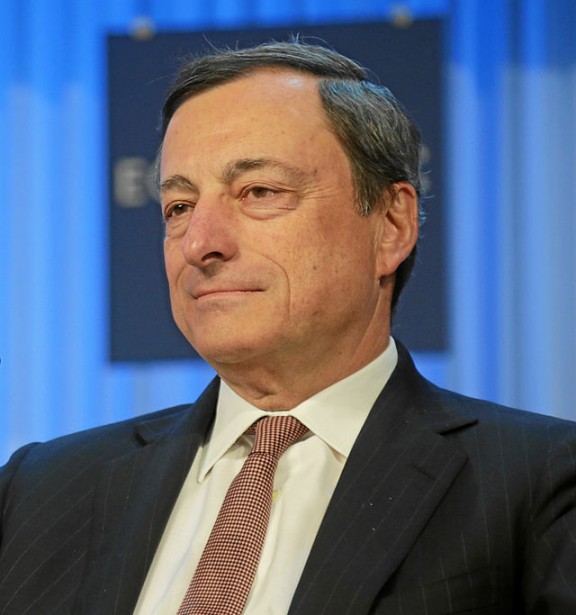European Central Bank (ECB) president Mario Draghi may be igniting further stimulus if the eurozone economies and markets signal that they need greater easing, cheap money and lower interest rates.
Draghi told reporters at a news conference Thursday that the door is open for increased stimulus, noting that the central bank is in the preliminary stages of establishing monetary support measures to deploy in the event of a weakened eurozone. Soon after these remarks, stocks soared while the euro declined.
Although the ECB head’s comments suggested that the central bank would be implementing these actions in the future, the central bank didn’t actually officially confirm additional monetary support after its latest governing council meeting in Frankfurt – it left its key interest rate at a record low 0.05 percent.

If the economy worsens, what would be some of the remedies Draghi would apply? Some of the examples include immense bond purchases which inserts freshly created money into the economy, which is also known as quantitative easing, a program that the Federal Reserve recently ended after several years and a $4 trillion balance sheet.
As the United States, Great Britain and Japan have focused primarily on government bonds as part of their own versions of QE, their European counterpart has acquired private sector assets, like covered bonds and asset-backed securities. The ECB is taking a wait-and-see approach to its current tools of stimulus and will be observing the effects of its present directives to see if they have had any positive outcomes on the economy.
In addition, the ECB has been hesitant moving forward because of Germany’s disapproval.
Despite the central bank taking a cautious stance before making any hasty decisions, the Organization for Economic Cooperation and Development (OECD) vehemently urged the ECB to employ further stimulus measures to avoid a prolonged period of stagnation and deflation.
“Overall, the euro area is grinding to a standstill and poses a major risk to world growth as unemployment remains high and inflation is persistently far from target,” wrote Catherine Mann, the OECD’s newly arrived chief economist. “In the euro area and for the global economy as well, intensified monetary support is critical to growth, otherwise ever lower inflation—even deflation—may be down the track.”
In the meantime, Draghi told reporters that the governing council would monitor the stimulus methods imposed by the Fed, Bank of England and Bank of Japan, the ladder of which unexpectedly boosted its annual stimulus to an enormous $725 billion.
With greater inflation seeping through the region, how much lower can the euro go? The currency has already fallen nine percent against the greenback since the start of the year. One economist told Reuters that if the ECB is successful in expanding its balance sheet then the exchange rate between the two aforementioned currencies could have significant influence.
“If the ECB is successful at expanding its balance sheet while that of the Fed stays the same or contracts, then it is in a position to influence the exchange rate of the euro,” said Colin Asher, senior economist at Mizuho Corporate Bank, in an interview with the newswire.




